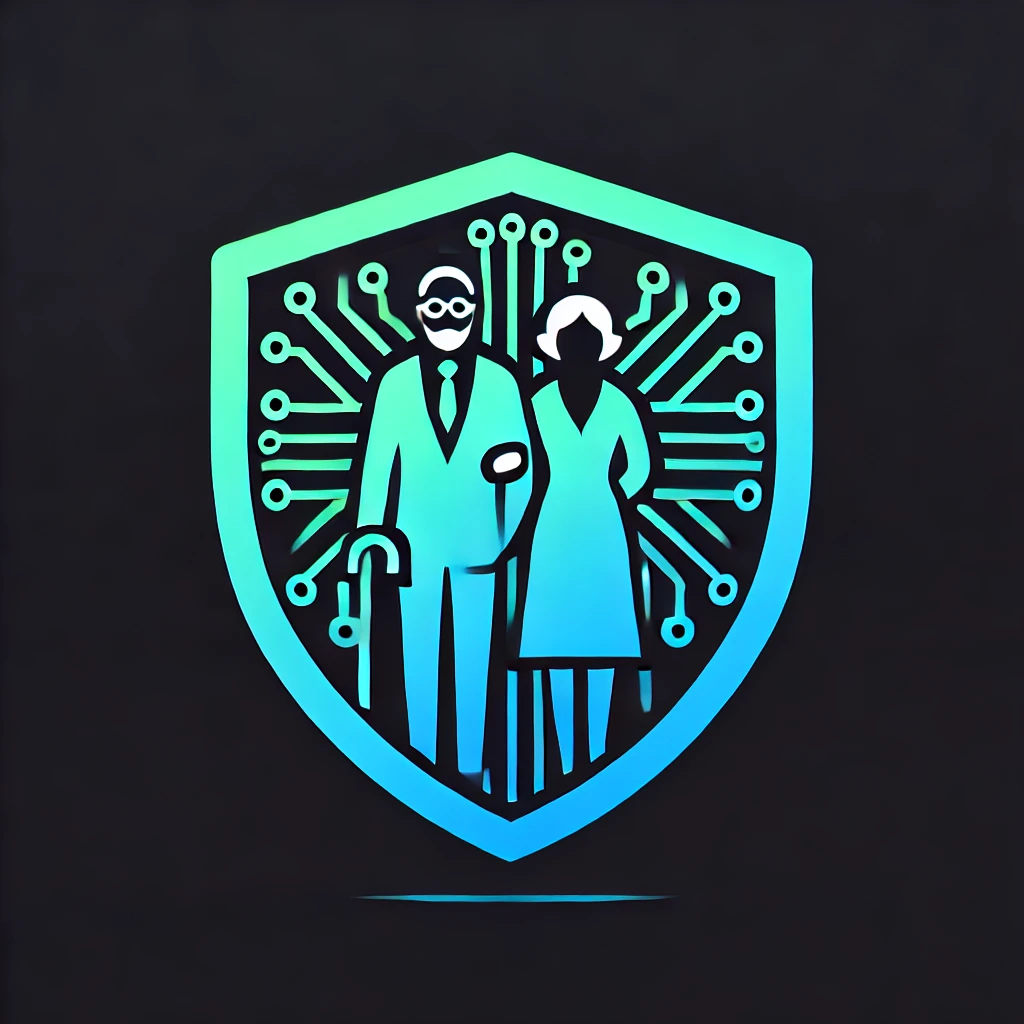Introduction
As technology continues to evolve, digital connectivity has become an integral part of daily life. Seniors are increasingly using the internet for communication, banking, shopping, and entertainment. However, with these opportunities come significant risks, including online scams, identity theft, and cybersecurity threats. Studies show that approximately 5 million older adults fall victim to financial fraud every year, resulting in an estimated $36 billion in losses (National Council on Aging, 2023).
To combat these threats, structured digital safety training programs are crucial. Senior Web Warden is dedicated to empowering seniors through comprehensive education, workshops, and community outreach programs designed to enhance online security awareness.
The Growing Digital Threat to Seniors
1. The Rise of Online Scams Targeting Seniors
Cybercriminals specifically target older adults due to their limited familiarity with digital threats. According to the FBI’s Internet Crime Complaint Center (IC3), seniors lost over $3 billion to cybercrimes in 2022 alone, making them one of the most vulnerable demographic groups.
Common online scams include:
- Phishing Attacks – Fraudulent emails or messages trick seniors into revealing personal information.
- Tech Support Scams – Scammers pose as technical support representatives to steal money.
- Romance Scams – Fraudsters manipulate seniors into sending money under the guise of online relationships.
- Investment and Cryptocurrency Scams – Seniors are lured into fake investment opportunities with promises of high returns.
- Medicare and Social Security Fraud – Scammers impersonate government officials to steal personal data.
2. Identity Theft Among Seniors
Identity theft is another growing concern. The Federal Trade Commission (FTC) reported over 400,000 cases of identity theft targeting individuals aged 60 and older in 2023. Stolen personal information can lead to financial fraud, tax fraud, and unauthorized access to medical benefits.
How identity theft occurs:
- Data breaches exposing personal records.
- Unsecured social media and email accounts.
- Fake calls impersonating banks or government agencies.
- Fraudulent medical claims using stolen Medicare details.
Senior Web Warden’s Digital Safety Training Programs
Recognizing the urgent need to protect seniors from online threats, Senior Web Warden has developed a range of educational programs and community initiatives designed to enhance digital literacy and cybersecurity awareness.
1. In-Person Training at Senior Living Centers
We conduct interactive digital safety workshops at senior living centers, providing hands-on training in:
- Recognizing and avoiding scams.
- Setting up strong passwords and enabling two-factor authentication.
- Safeguarding personal information on social media.
- Identifying secure websites for online transactions.
These sessions offer real-time support, allowing seniors to ask questions and practice digital security techniques in a safe environment.
2. Library-Based Cybersecurity Awareness Programs
Public libraries serve as essential learning hubs. Senior Web Warden partners with libraries to offer:
- One-on-one digital assistance.
- Group sessions on cybersecurity best practices.
- Resource materials, including printed guides and digital tutorials.
3. Virtual Webinars for Nationwide Reach
For seniors unable to attend in-person sessions, we provide online webinars covering:
- How to recognize fraudulent emails and phone calls.
- Best practices for securing personal data.
- Demonstrations on safe online shopping and banking.
- Open Q&A sessions with cybersecurity experts.
These webinars enable seniors to learn from the comfort of their homes while interacting with instructors in real time.
4. Student Volunteer Programs for Senior Assistance
A unique aspect of Senior Web Warden’s initiative is its student volunteer program. High school and college students are trained in cybersecurity awareness and conduct educational sessions for seniors in return for volunteer hours.
This program:
- Bridges the generational gap through peer-assisted learning.
- Encourages community involvement and digital literacy.
- Helps students develop leadership and communication skills.
Key Digital Safety Tips for Seniors
1. Strengthen Password Security
- Use long, complex passwords (at least 12 characters).
- Avoid using easily guessed information (e.g., birthdates, pet names).
- Use password managers to store and manage credentials.
2. Enable Two-Factor Authentication (2FA)
- Activate 2FA on email, banking, and social media accounts.
- Opt for authentication apps over SMS-based verification.
3. Recognize Phishing Scams
- Never click on links in unsolicited emails.
- Verify sender addresses before responding.
- Report suspicious messages to relevant authorities.
4. Secure Personal Information
- Limit personal details shared on social media.
- Be cautious when accepting friend requests from unknown individuals.
- Shred documents containing sensitive information before disposal.
5. Use Secure Internet Connections
- Avoid accessing financial accounts over public Wi-Fi.
- Use Virtual Private Networks (VPNs) for added security.
- Ensure home Wi-Fi is password-protected.
6. Verify Online Transactions
- Shop only from reputable websites with “https://” in the URL.
- Avoid deals that seem too good to be true.
- Review bank statements regularly for unauthorized transactions.
The Impact of Digital Safety Training
1. Increased Confidence in Using Technology
By equipping seniors with the necessary skills to navigate the digital landscape, they feel more empowered to use online platforms safely. According to a 2023 AARP survey, 75% of seniors who attended cybersecurity training felt more confident handling digital tasks.
2. Reduction in Financial Losses
Studies indicate that seniors who participate in digital safety training are 80% less likely to fall for common scams.
3. Enhanced Community Awareness
Through programs like Senior Web Warden’s student volunteer initiative, seniors receive ongoing support from younger generations, fostering intergenerational learning and community engagement.
Conclusion
As seniors continue to embrace digital technology, ensuring their online safety is more important than ever. Senior Web Warden’s digital safety training programs provide seniors with the education, resources, and confidence to navigate the internet securely.
By participating in workshops, library programs, webinars, and student-led initiatives, seniors can protect themselves from cyber threats and enjoy a safe digital experience.
Join us today! To learn more about our digital safety training programs or to schedule a session, visit our website or contact Senior Web Warden for further details. Together, we can create a safer online world for seniors.


Leave a Reply